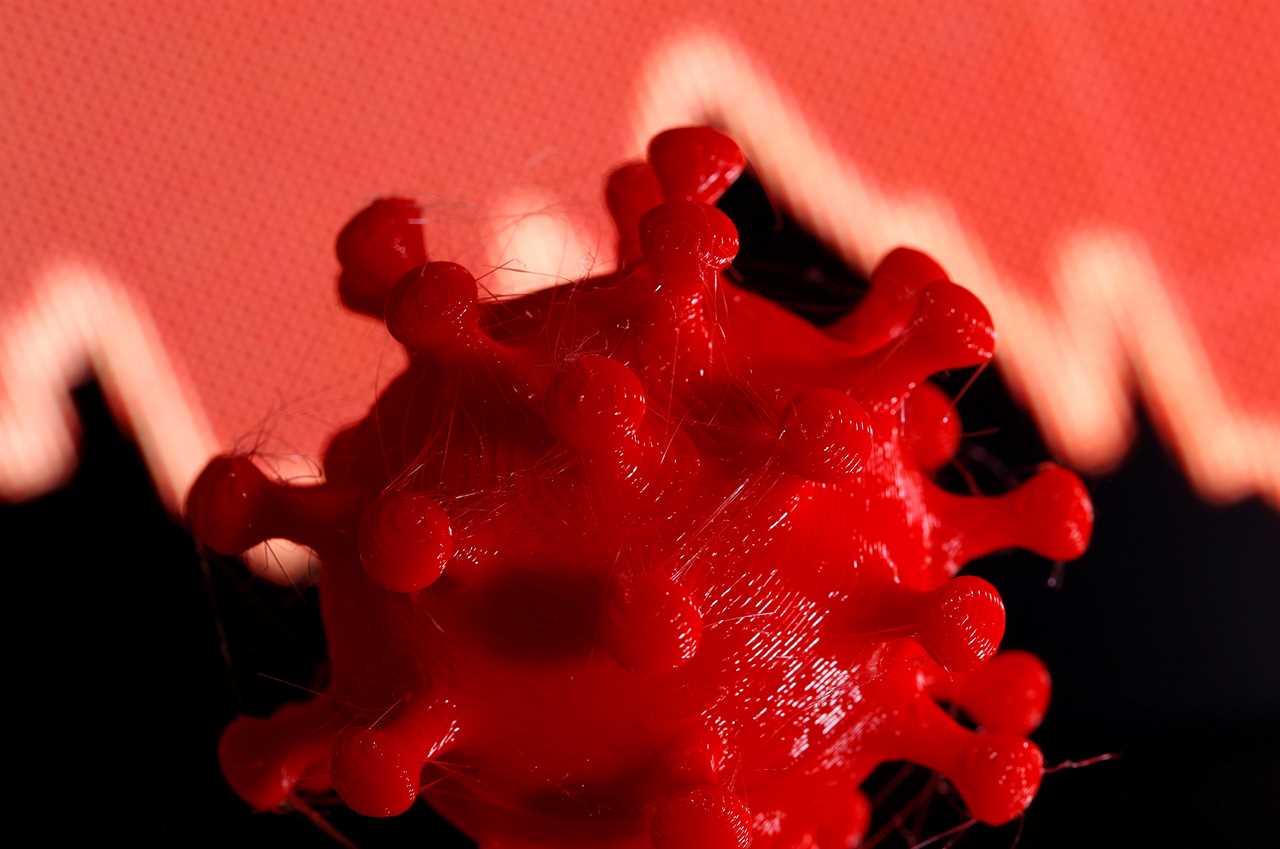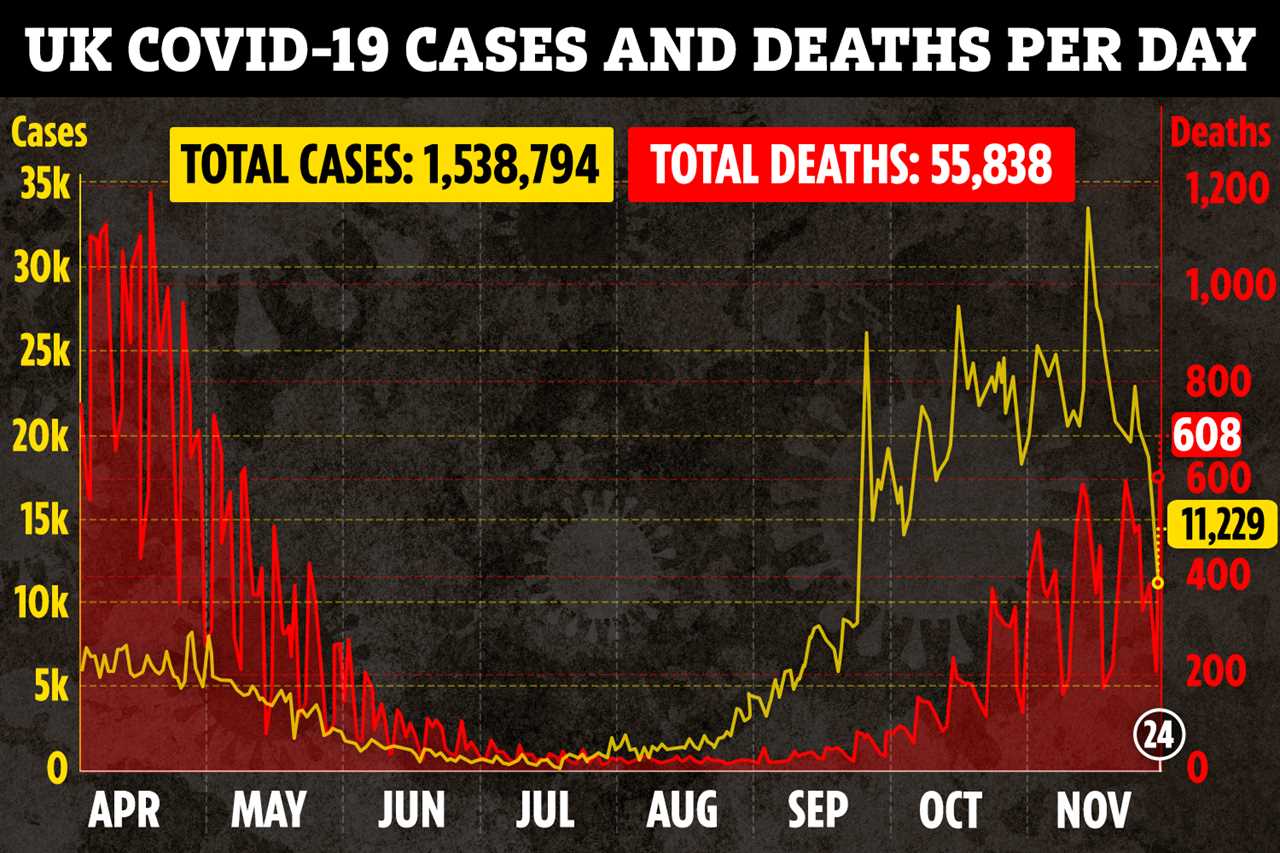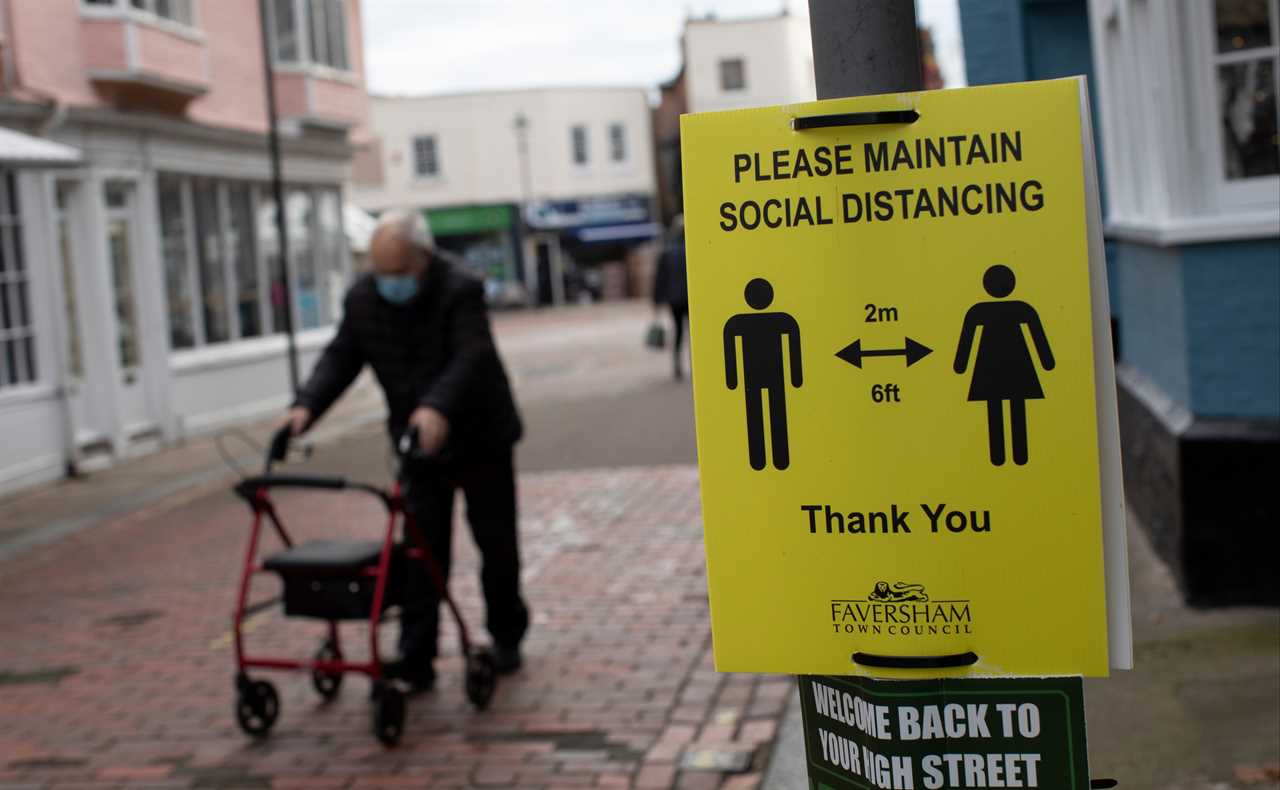THE CORONAVIRUS has mutated but new strains aren’t making it spread faster, scientists have claimed.
Researchers said the virus will change over time and stated that people need to remain “vigilant” against new strains.

Experts at University College London (UCL) said that the imminent introduction of vaccines could “exert new selective pressures on the virus”, these they claim – could lead to mutations that don’t respond to jabs.
It comes after it was earlier this week revealed that the Oxford/Astrazenca vaccine is 90 per cent effective.
Other vaccines such as the Moderna jab and the Pfizer offering have in recent weeks, been found to be 95 per cent effective.
The findings of the UCL research are based on coronavirus genomes – or genetic material – from more than 46,000 people with Covid-19 from 99 countries.
The research was published in Nature Communications and lead author Professor Francois Balloux, of UCL Genetics Institute said the team is confident they will be able to spot changes in mutation in time for vaccines to be updated.
“The news on the vaccine front looks great.
“The virus may well acquire vaccine-escape mutations in the future, but we’re confident we’ll be able to flag them up promptly, which would allow updating the vaccines in time if required”, Prof Francois said.

First and corresponding author Lucy van Dorp, of UCL Genetics Institute added: “None of these mutations are making Covid-19 spread more rapidly, but we need to remain vigilant and continue monitoring new mutations, particularly as vaccines get rolled out.”
The researchers state that mutations in the coronavirus can develop in three ways.
These are: mistakes resulting from copying errors as the virus replicates itself inside the human body; through interactions with other viruses infecting the same cell; and changes induced by the host’s or a person’s own immune system.
UCL experts and scientists from Cirad, the Universite de la Reunion and the University of Oxford, analysed a global dataset of Sars-Cov-2 genomes from 46,723 people, collected up until the end of July 2020.
More mutations
So far they have identified 12,706 mutations in Sars-Cov-2.
But this doesn’t mean that there are 12,706 different versions of the virus and the experts said that mutations occurred repeatedly in 398 of the cases.
The experts found no evidence that these common mutations were making it easier for the virus to spread.
They did however state that the most common mutations are neutral for the virus – including one mutation in the virus spike protein called D614G.
Common mutations, it was found, were mainly induced by the immune system rather than the virus adapting to the human host.

However, they added this is in contrast to what happened when Sars-Cov-2 later jumped from humans into farmed minks.
Ms van Dorp said: “When we analysed virus genomes sourced from mink, we were amazed to see the same mutation appearing over and again in different mink farms, despite those same mutations having rarely been observed in humans before.”
Over the weekend it was reported that scientists in the UK were monitoring 4,000 deadly strains of coronavirus.
A vaccine could potentially cause an explosion in mutations of coronavirus – which is a natural, but worrying reaction.
As the virus fends for itself and tries to avoid extinction, it could cause a new strain to circulate which our current antibodies may not be able to protect us from.
Last month it was also revealed that a strain of the virus in Spain was likely to have infected Brits who had travelled to the country for some summer sun.
The experts at UCL added that Covid-19 will become more common in human populations – but said this does not mean the virus will become anymore harmful.
Ms van Dorp added: “The virus seems well adapted to transmission among humans, and it may have already reached its fitness optimum in the human host by the time it was identified as a novel virus.”
Did you miss our previous article...
https://trendinginthenews.com/covid-19/when-will-boris-johnson-announce-the-new-tiers






